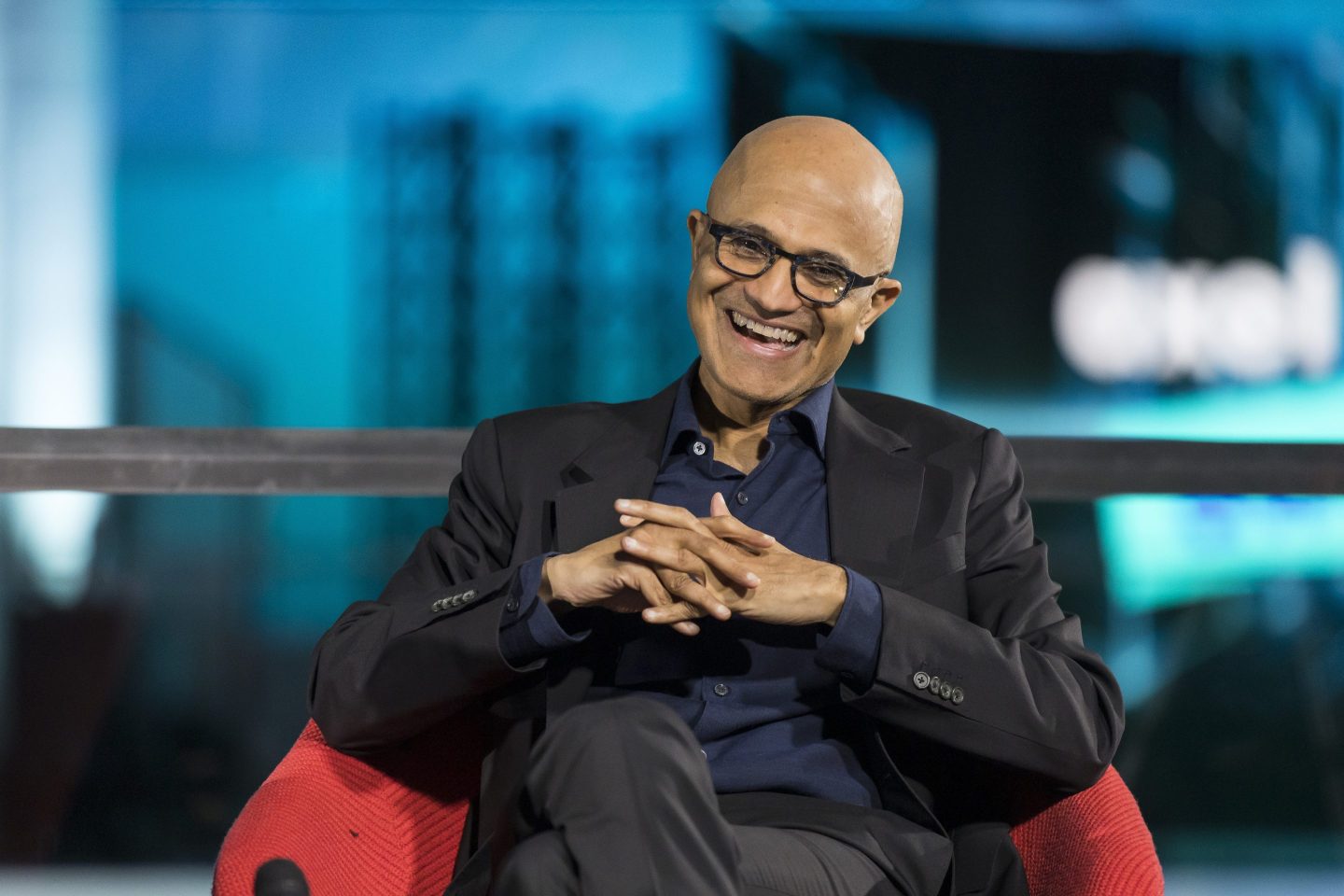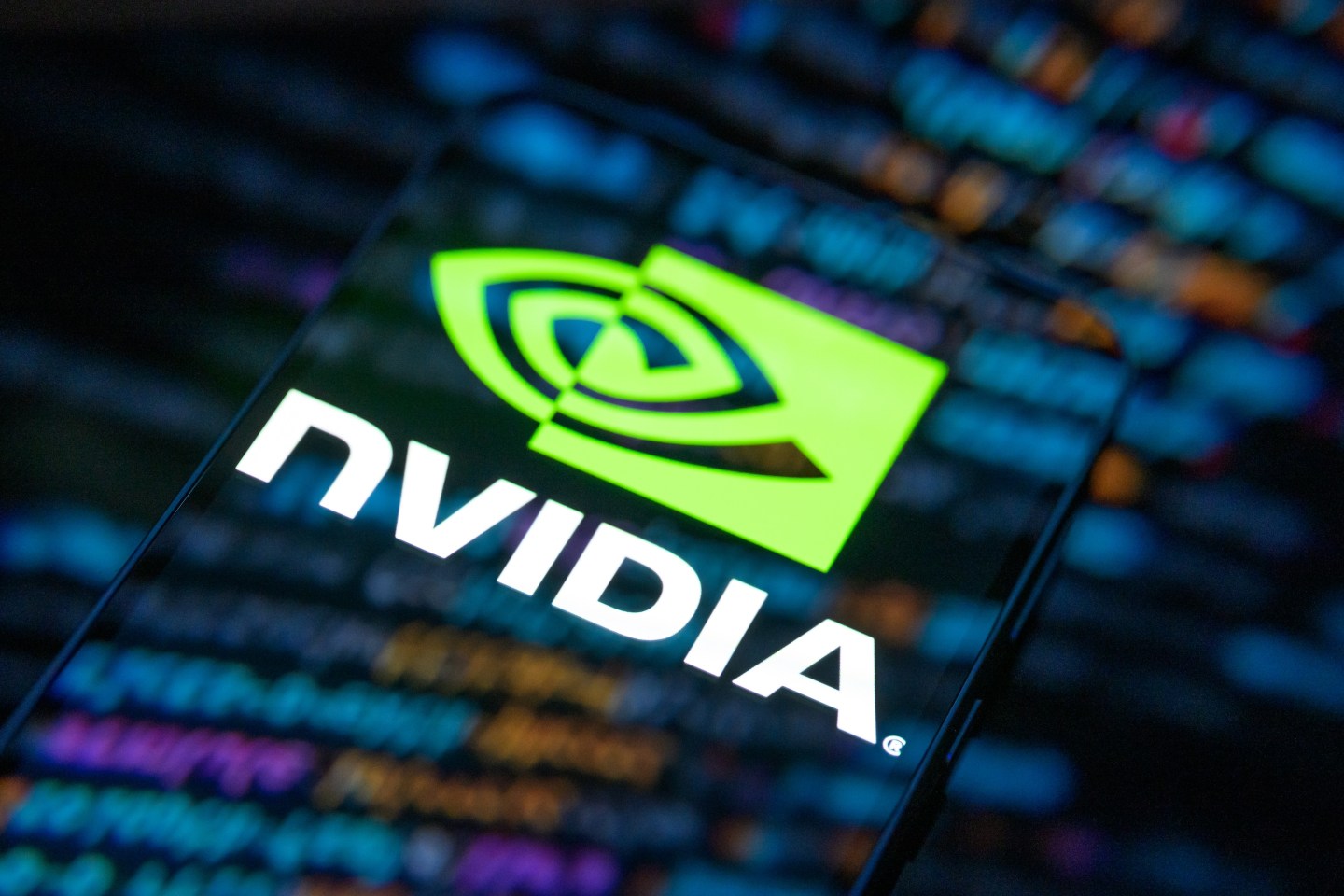Yesterday’s Microsoft and Alphabet results certainly delivered on the narrative front—Microsoft’s AI play is paying off big time, and Google is seemingly struggling to compete.
Microsoft saw a revenue boost of 13% thanks to 29% growth in its Azure cloud operation, which was in turn driven by enthusiastic take-up of the AI features that Microsoft—via its sponsorship of OpenAI—is integrating into its services. Its share price rose as much as 6% in after-hours trading.
But while Microsoft beat analyst estimates, Google Cloud revenue fell short, with 22% revenue growth being the unit’s slowest in over two years. Alphabet’s share price dropped by more than 6%. “Despite Alphabet topping quarterly earnings and revenue estimates, investors were disappointed by the relatively weak performance at its Google cloud platform, which is at risk of falling further behind Azure and AWS,” said Investing.com senior analyst Jesse Cohen, as quoted by Reuters.
Of course, we’re only talking about one quarter here, in an AI-plus-cloud landscape that’s changing very rapidly—so we can’t read anything definitive into it yet. But even so, there’s reason to believe that Microsoft is enjoying the benefits of being extremely aggressive in its promotion of generative AI as something to roll out and use now, rather than waiting until downsides like “hallucinations” are ironed out.
The breakneck pace of AI’s development right now is largely down to Microsoft CEO Satya Nadella’s pedal-to-the-metal strategy, which forced Google to scramble to develop a coherent and “bold” AI strategy in response. The resulting race has seen Amazon shovel money in the direction of Anthropic, in exchange for which it won the status of the up-and-comer’s “primary cloud provider for mission critical workloads.” (Google, which also invested in Anthropic, has to settle for the non-mission-critical stuff.) It’s also seen Elon Musk launch xAI, partly out of outrage at OpenAI—which he once cofounded as a nonprofit—turning into a profit machine for Microsoft. All systems are go, for everybody.
Fears persist over the risks of this pace. Yesterday saw the release of yet another open letter on the subject, this time from AI “godfathers” Geoffrey Hinton and Yoshua Bengio among others, who noted, “Companies are engaged in a race to create generalist AI systems that match or exceed human abilities in most cognitive work.” The authors called for urgent regulation, as well as greater efforts to make AI systems more predictable and interpretable.
“If managed carefully and distributed fairly, advanced AI systems could help humanity cure diseases, elevate living standards, and protect our ecosystems. The opportunities AI offers are immense,” they wrote. “But alongside advanced AI capabilities come large-scale risks that we are not on track to handle well. Humanity is pouring vast resources into making AI systems more powerful, but far less into safety and mitigating harms. For AI to be a boon, we must reorient; pushing AI capabilities alone is not enough.”
Of course, not everyone’s an AI doomer. For example, a trio of European experts last week published a piece in Harvard’s Misinformation Review that said “current concerns about the effects of generative AI on the misinformation landscape are overblown.” GenAI may increase the supply of misinformation, they argued, but “the consumption of misinformation is mostly limited by demand and not by supply.”
“Increases in the supply of misinformation should only increase the diffusion of misinformation if there is currently an unmet demand and/or a limited supply of misinformation. Neither possibility is supported by evidence,” the academics wrote. “Given the creativity humans have showcased throughout history to make up (false) stories and the freedom that humans already have to create and spread misinformation across the world, it is unlikely that a large part of the population is looking for misinformation they cannot find online or offline.”
Maybe Nadella’s AI strategy was worth it for Microsoft and won’t mess up the world. Maybe it will, to the extent that it wasn’t worth it for anyone. Let’s find out, shall we?
Want to send thoughts or suggestions to Data Sheet? Drop a line here.
David Meyer
NEWSWORTHY
SIGNIFICANT FIGURES
181 million
—Amazon’s EU user base, as disclosed in the first store transparency report produced by the company to comply with the new Digital Services Act. Amazon is trying to wriggle out of the new law’s remit, on the basis that every EU country where it operates has a bigger retailer.
IN CASE YOU MISSED IT
Europe could face a ‘century of humiliation’ warns CEO of Nvidia rival, who says startups fare better in America, by Orianna Rosa Royle
Snap’s stock wobbles as it yanks guidance on ‘unpredictable nature of war’, by Paige Hagy and Nick Lichtenberg
AI’s big players all flunked a major transparency assessment of their LLMs, by Sage Lazzaro
Crypto has a DeFi problem, by Leo Schwartz
California suspends Cruise self-driving cars from operating in the state after series of high-profile accidents, by Bloomberg
Child sex abuse images generated by AI risk flooding the internet if no new controls are put in place, watchdog warns, by the Associated Press
BEFORE YOU GO
Space drugs. IEEE Spectrum has a fascinating story on efforts to make pharmaceuticals in space and bring them home. A company called Varda wants to build manufacturing facilities in low Earth orbit, and as its proof of concept, it’s made a few grams of the antiviral ritonavir in a trash-can-sized satellite called Winnebago 1. Problem is, private satellites are usually designed to burn up on re-entry, and Varda is now struggling to convince the Federal Aviation Administration that it’s met the legal and safety requirements to bring back Winnebago 1 so the drugs can be inspected.
As the piece notes, many private space companies are scathing about the FAA’s capacity to handle the booming sector. However, Varda cofounder Delian Asparouhov says the landing standoff is the result of poor “coordination between military ranges that haven’t done this type of commercial activity.”
This is the web version of Data Sheet, a daily newsletter on the business of tech. Sign up to get it delivered free to your inbox.












